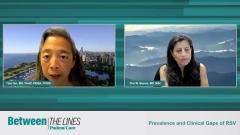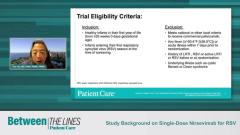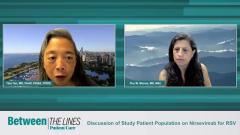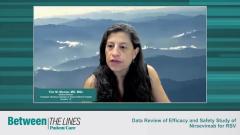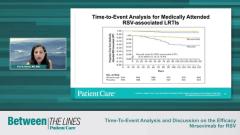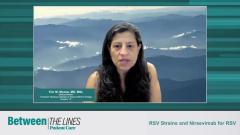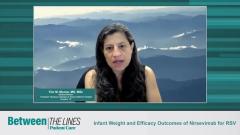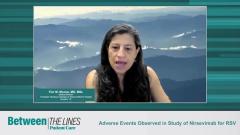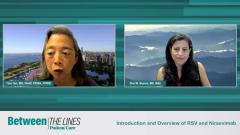
Study Background on Single-Dose Nirsevimab for RSV
Tina Tan, MD, FAAP, FIDSA, FPIDS, presents the background, objectives, and methods of a recent study on the efficacy and safety of nirsevimab for Respiratory Syncytial Virus (RSV) in late-preterm and term infants.
Episodes in this series

Transcript
Flor M. Munoz, MD, MSc: When we look at the study, there were two primary study outcomes that were looked at. The primary efficacy outcome looked at medically attended RSV-associated lower respiratory tract infection through 150 days after the treatment placebo injection. And the secondary efficacy outcome was RSV-associated lower respiratory tract infection hospitalization through 150 days after the treatment placebo injection. All the RSV cases were confirmed by central laboratory testing. So we know that all the babies who were included in the study had been confirmed to truly have RSV. When they looked at the trial eligibility criteria, the inclusion criteria, very importantly, were healthy infants in their first year of life who were born at 35 weeks or older gestational age. And they were infants who were entering into their first respiratory syncytial virus season at the time of screening. I think what’s also important is if you look at the exclusion criteria, basically it was any infant who had a fever or an acute illness within 7 days prior to randomization, a history of lower respiratory tract infection, RSV, or active lower respiratory tract infection or RSV before randomization, and then anyone who had underlying illnesses such as cystic fibrosis or Down syndrome. So they really were looking at normal healthy infants who did not have another reason that would place them at increased risk for RSV disease. When you look at the number of infants who were enrolled in the study, it was a 2:1 randomization, and there were almost 995 infants who were enrolled in the nirsevimab group and almost 500 in the placebo group. The randomization was completed by a hemisphere of residency. So they were looking at Northern vs Southern hemisphere, as well as age. And there were 3 different age groups. There were those infants who were 3 months of age and younger, those between 3 [and] 6 months of age, and those who were over 6 months of age. The way that they measured immunity was that they took blood samples at screening and then at various time points after the infant had received either the nirsevimab or the placebo. Then they evaluated safety throughout the study up to day 361. So this was actually a very, very long follow-up.
Transcript is AI-generated and edited for clarity.
Newsletter
Enhance your clinical practice with the Patient Care newsletter, offering the latest evidence-based guidelines, diagnostic insights, and treatment strategies for primary care physicians.

